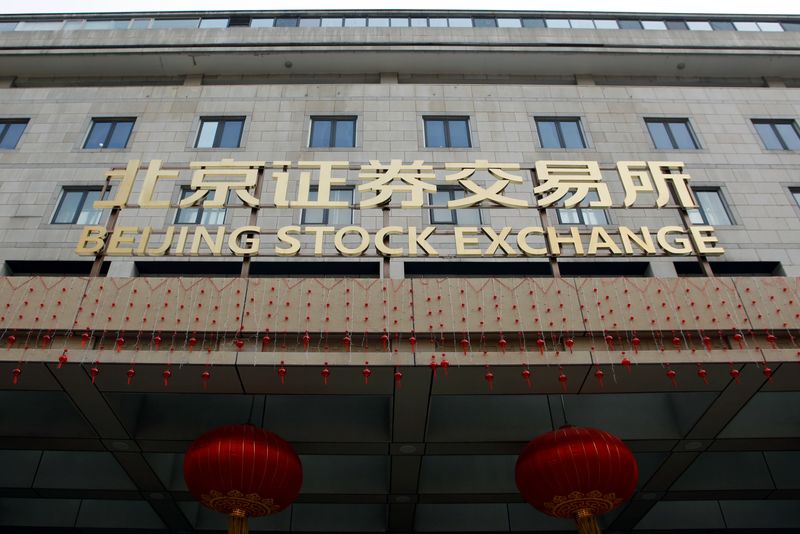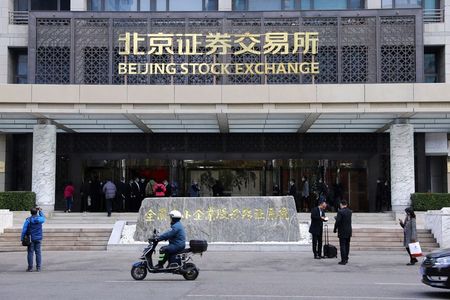By Rodrigo Campos
(Reuters) - Emerging markets in October posted their second-largest month of portfolio inflows this year, though China suffered another bout of outflows with investors rethinking their exposure to the country, the Institute of International Finance (IIF) said.
Overall, foreign investors added $9.2 billion to emerging market portfolios last month, with fixed income attracting $7.6 billion in the strongest monthly inflows so far this year.
However, the breakdown showed emerging markets outside China attracted $18 billion last month while China suffered overall outflows, including $1.2 billion from fixed income.
Chinese bond portfolios have posted outflows every month since Russia invaded Ukraine in February, totaling $105.1 billion over nine months. Chinese stock portfolios lost $7.6 billion in October, the most since March.
Back in the first quarter, the IIF debated whether the shift to outflows from China was a tactical move linked to the Russian invasion or a shift in investor strategy.
"Increasingly, this question is being settled in favor of the latter, with market participants looking at China in a new light," said IIF economist Jonathan Fortun in a report alongside the flows data.
"This shift reflects geopolitical concerns and anxiety that the government’s zero-COVID policy could weigh on China in the medium term."
China's zero-COVID approach, which is slowing the economy and fueling widespread frustration, was deemed "completely correct" by Chinese authorities over the weekend and is not expected to be significantly revised before an annual parliamentary session in March.
Money managers have increasingly launched emerging market or Asia investment products with no exposure to China to meet increasing demand for such strategies from global investors.
However, some asset managers have argued that beaten-down Chinese assets, especially equities, are attractive. Others are just betting on hope.
The October inflows failed to offset outflows suffered by emerging markets earlier in the year. Overall emerging market bonds and stocks flows are at -$6.2 billion for 2022, with China flows alone tearing an $82.8 billion hole year-to-date.
While most of the China outflows in the IIF data come from debt portfolios, Chinese stock indexes have had a rough year. Shanghai stocks are down 15% while Hong Kong is down 29%, on track for its largest yearly decline since 2008. The China MSCI index, priced in dollars, has fallen over 35% this year.
The yuan has fallen 12% this year against the dollar, on track for the largest yearly losses in decades.
IIF regional data showed an inflow of $5.6 billion to Asia despite China's significant outflows, while Latin America took in some $2.6 billion and emerging Europe another $2.3 billion. The only region in the red last month was Africa and the Middle East, with $1.3 billion in outflows.

Brazil, Latin America's largest economy, saw net foreign inflows in a month bookended by the two rounds of a presidential election won by leftist former President Luiz Inacio Lula da Silva, who will take over in January from right-wing incumbent Jair Bolsonaro.
Brazilian stocks are nearly flat this month and up 10% for the year in local currency, while measured in dollars the yearly gain is 11%. Hard-currency debt spreads to U.S. Treasuries on Monday hit their tightest since June 2021.
